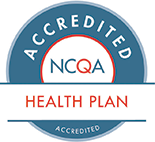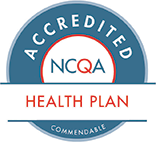Know your options
A guide to Minimally Invasive Procedures (MIP)
With MIP LESS is MORE
- Less recovery time
- Less time in the hospital
- Less pain
- Less scarring
…when compared to open surgery
Minimally Invasive Procedures (MIPs), also called laparoscopic surgeries, use state-of-the-art technology to perform abdominal surgery. Patients who choose MIP usually enjoy faster recoveries and shorter hospital stays when compared to surgery patients. MIPs have been proven to be just as effective as surgery, while getting patients back to the things that are important to them sooner. Between 1993 and 2004, MIPs were used to successfully treat more than 20 million Americans. Ask your healthcare provider whether or not you are a candidate for MIP.
What happens during a minimally invasive procedure?
During an MIP, a small, dime-sized incision is made in the patient's abdomen through which a miniature camera, or videoscope, and specialized instruments are inserted to perform the procedure. MIP reduces the need for a long, incision that may cut through large amounts of skin and muscle. With MIP, less is more.

Open hysterectomy approach

MIP hysterectomy approach

Scarring difference between an open and MIP hysterectomy procedure
| Side-by-side comparison | |||||||||
|---|---|---|---|---|---|---|---|---|---|
| Open surgery: | Minimally Invasive Procedure: | ||||||||
|
|
||||||||
Minimally invasive procedures help you recover sooner
No one wants to stay in a hospital any longer than necessary. Patients who choose MIP are often able to leave the hospital sooner than patients who undergo surgery. In addition, recovery times at home are typically shorter. That means you can get back to your routine in less time with an MIP than it might take with (open) surgery. Since a MIP requires smaller incisions than surgery, there is less trauma to your body.
Minimally invasive procedures cause less scarring
Many surgeries leave patients with large, unsightly scars. But that's usually not an issue for patients who choose MIP. Most incisions from MIPs are small (about the size of a dime), and many people won't even notice them after they have healed.
Minimally invasive procedures cause less pain
Since a MIP requires a smaller incision (opening) than a surgery does, the procedure is less disruptive to the body. As a result, there is typically less pain associated with an MIP and less need for pain medication following the procedure.
Learn more about specific MIPs
MIPs are just as effective as surgery. Many abdominal surgeries can be performed as either an MIP or a method. It's important to know that the surgical outcomes are the same. MIPs have been shown to be just as effective as surgery for many procedures, such as:
- Cholecystectomy (removal of your gall bladder)
- Colectomy (for colon surgery)
- Appendectomy (removal of your appendix
- Hysterectomy (removal of your uterus)
- Surgery for acid reflux (GERD)
Know the risks
All surgical procedures have risks, but the risk for serious complications depends on your medical condition and age, as well as on your surgeon's and anesthesiologist's experience. Ask your healthcare provider or surgeon about what to expect after surgery as well as the risks that may occur with any surgery, including:
- Reactions to medications or anesthesia
- Breathing problems
- Bleeding
- Infection
- Injury to blood vessels
- Injury to internal organs
- Blood clots in the veins or lungs
- Death (rare)
Additionally, open surgery has a greater potential for:
- Muscle injury
- Post-operative incisional hernia
Are minimally invasive procedures right for you?
Choosing MIP vs. open surgery
For some patients, MIPs are not an appropriate choice. Your surgeon will help you determine the best choice for you and will consider factors such as:
- Obesity
- History of prior abdominal surgery causing dense scar tissue
- Inability to safely visualize organs
- Bleeding problems during the operation
- Underlying medical conditions
The decision to perform a MIP or open surgery should be made during a discussion with your surgeon. Sometimes a procedure can start out as a MIP, but may have to be converted to open surgery based on the factors listed above.
Talk to your healthcare provider
Your surgeon can help you decide which treatment option is right for your condition. The questions below can help you talk with your healthcare provider or surgeon.
- What are the benefits of MIP?
- What are the risks?
- How many minimally invasive procedures have you performed?
- How many times have you performed this specific procedure?
- Will you be performing the procedure yourself?
- How long will it take me to recover?
- When will I be able to leave the hospital?
- When can I resume my normal activities, including school, work, exercise, sexual activity and recreation?
- Do you have a specialized staff that focuses on minimally invasive procedures?
- Is MIP an appropriate option for me?
If you're not satisfied with the responses you receive, consider asking for a second opinion. You are an integral part of your healthcare team and you should feel comfortable with the selected treatment and surgeon.
Resources
©2010 Ethicon Endo-Surgery, Inc.
a Johnson & Johnson company
Images courtesy of Johnson & Johnson
- http://www.smarterpatient.com
- http://www.smarterpatient.com/patient/learnmore/minimallyinvasivesurgery
National Center for Biotechnology Information, NCBI
U.S. National Library of Medicine
Questions?
If you can't find an answer, please feel free to contact our Customer Service Customer Service Customer Service
Questions?
If you can't find an answer, please feel free to contact our Customer Service
Employer web tools
Benefit Tracker
Check benefits, eligibility, incentive and utilization
Rate finder is now in the Producer Dashboard
Log in with your current username and password to create quotes for groups up to 50.
Producer DashboardLog in






Hello.
We have exciting news to share. ODS is changing its name to Moda Health.
Moda comes from the latin term "modus" and means "a way". We picked it because that's what we are here to do: help our communities find a way to better health.
Together, we can be more, be better.
Please select the state you live in, or the state where your employer is headquartered, so we can tailor your experience:

Hello.
Please select the state you live in, or the state where your employer is headquartered, so we can tailor your experience:
Privacy notice
We use cookies and similar analytics technologies to understand how visitors interact with our website, improve performance, and enhance user experience. These tools help us analyze traffic patterns and usage trends.
We do not collect or store personal information, track users for advertising purposes, or use social media plugins.
By continuing to use this site, you acknowledge our use of cookies for analytics purposes only. For more information, please refer to our Privacy Policy.
Changing your location to Oregon
You can return to your previous location in the site header.

